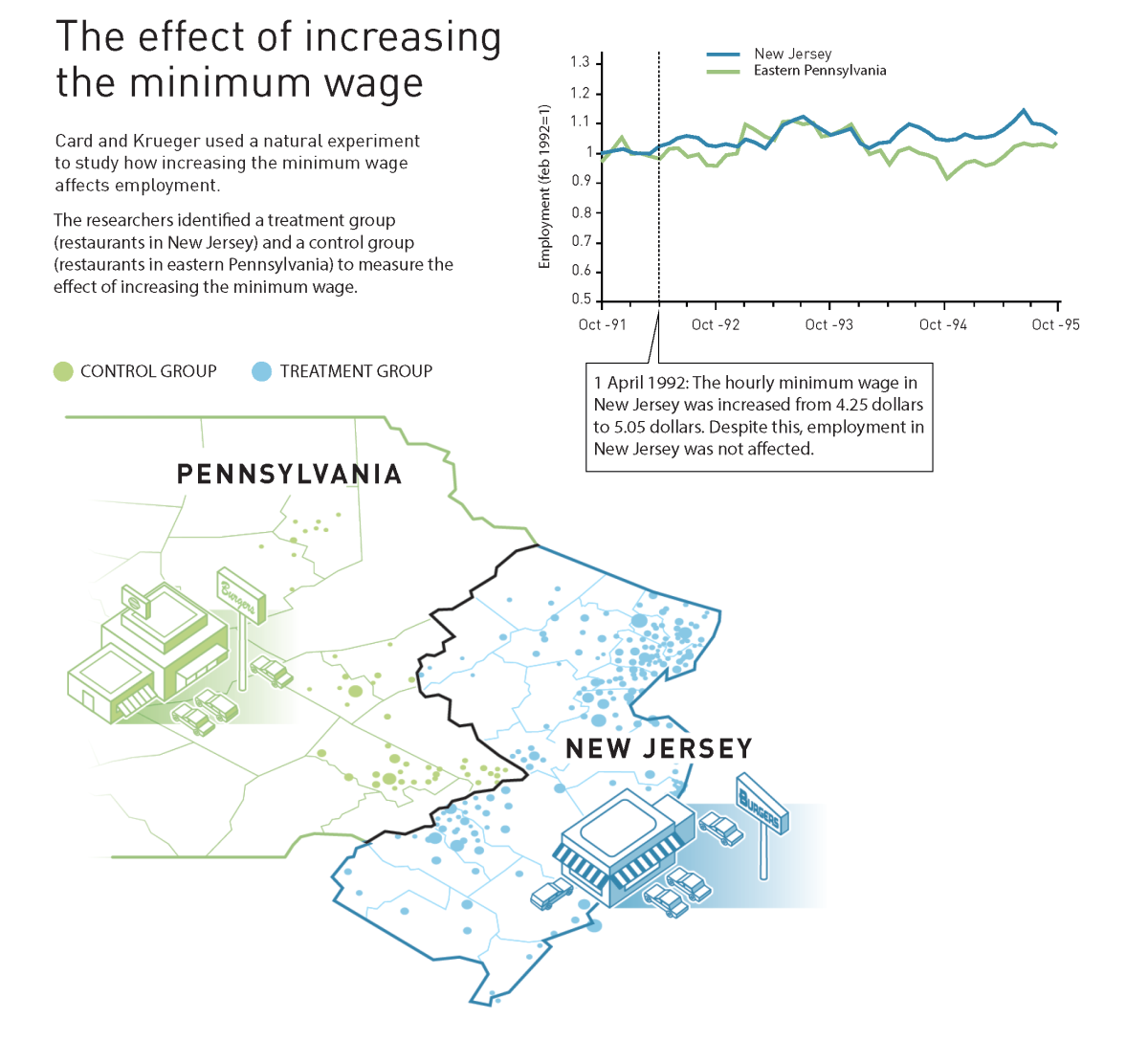On Monday, the Swedish Academy announced the three recipients of the 2021 Sveriges Riksbank Prize in Economic Sciences in Memory of Alfred Nobel — two of whom have Amazon affiliations.
David Card, an Amazon Scholar and a professor of economics at the University of California, Berkeley, won half the prize “for his empirical contributions to labor economics”, according to the award citation.
Guido Imbens, an academic research consultant at Amazon and a professor at the Stanford Graduate School of Business, shared the other half of the prize with MIT’s Josh Angrist for “methodological contributions to the analysis of causal relationships”.
“David and Guido have used applied econometrics to help us invent new ways to serve our customers,” says Pat Bajari, vice president and chief economist for Amazon’s Core AI group. “They’re both truly outstanding economists, and they’ve been great mentors to, in particular, many of the younger economists at Amazon, helping them to rigorously frame business problems using economic reasoning and applied econometric methods. Congratulations to them both!”
As Card’s Nobel citation indicates, he is best known for his work on empirical economics, the attempt to put microeconomics on a more secure empirical footing through experiment — both controlled experiments and “natural experiments”.
In a natural experiment, for reasons that are essentially random, circumstances enable the comparison of a population that receives an economic intervention with one that doesn’t, in a context where statistical biases are likely to be small.
For instance, in the early 1990s, Card and his colleague Alan Krueger investigated fast-food markets in two adjacent, demographically similar regions in Pennsylvania and New Jersey, one of which had recently seen a minimum-wage hike, and one of which hadn’t. Employment growth remained similar in both.

As Card explained to Amazon Science in January, his and his colleagues’ early empirical work met a good deal of skepticism within the field. The phenomena under investigation, the skeptics argued, were so complex that it would be very difficult to disentangle the underlying causal relationships.
The analysis of causal relationships — the research topic mentioned in Imbens’s Nobel citation — thus became one of the empirical economists’ chief concerns. As an example, at the 2020 meeting of the AEA, Imbens, Bajari, and colleagues presented a new method for using randomized experiments to tease out causal relationships in data.
Amazon has an amazing set of economists doing cutting-edge applied research that is showing the power of economic theory and methods in real-world settings.
The most familiar example of a randomized experiment is a drug trial, where some subjects receive an experimental drug, some receive a placebo, and their outcomes are compared. But randomized experiments are also common in industry. Amazon, for instance, does frequent A/B testing, in which one group of customers sees one version of a web page, and another group sees another version.
Such tests can suffer from biases due to spillover effects. Suppose that, in an A/B test, the presentation of information to group A — the “treatment group” — leads to increased purchase of a particular product. That product’s rise in popularity means that it’s recommended more frequently to shoppers — including those in group B, the control group.
“If that happens, the control group is no longer a control,” Card told Amazon Science. “The test results are unreliable.”
“This type of spillover does not happen in standard medical-drug trials, because one individual taking the new drug does not affect the outcome for another individual taking the placebo,” Imbens added. “But it is a feature of many experiments at Amazon and similar companies, where we have complex feedback loops.”
In their AEA paper, Bajari, Imbens, and their colleagues presented a blueprint for designing experiments that can identify causal relationships even in the presence of spillover effects, along with statistical techniques for analyzing the results of such experiments.
Causal analysis is a common topic of economic research at Amazon, whose retail business offers an unprecedented opportunity to do empirical economics at scale.
"Amazon, like many other modern companies, uses data extensively to support its decision making," said Imbens, reached for comment after winning the Nobel Prize. "That makes the relevant statistical methods by definition causal: what do we expect to see when we change something in the experience for the user or sellers? What happens when we improve the shipping speed? What happens when we improve the return policy, or the curating of the reviews? All these questions are causal, and the methods David Card, Joshua Angrist, and I have been working on are extremely relevant for this. More than that, the economists at Amazon constantly raise new questions that lead to further methodological innovations."
“Amazon has an amazing set of economists doing cutting-edge applied research that is showing the power of economic theory and methods in real-world settings," added Card.
[Article updated on 10/18/21 to add Guido Imbens's comment after winning the Nobel Prize.]


















